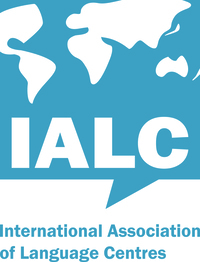Learning a new language is one of the most rewarding things you can do. However, it’s also a big challenge. The role of a language teacher is to help their students along their journey. To help, we’ve compiled a list of language learning tips for students and teachers alike.
When learning any new skill, one of the most difficult things is knowing how to spend your time.
As you learn a language it’s only natural that you’d like to make as much progress as you can, as quickly as possible. Teachers also want this for their students. As such, you don’t want to waste any time on ineffective methods.
With that in mind, here are 8 tips language learners can use to reach their full potential.
1. Think about how you Learn
Not everyone learns the same way. Some people need more study than others, but this depends on what you want to achieve. Do you need to pass an exam? Or do you just need to socialise in English?
Be honest with yourself. If you know you don’t study, don’t pretend that you do.
Quality is better than quantity. Spending hours trying to memorise lists of phrasal verbs may not be as effective as ten minutes listening to the radio.
It all depends on what your goals are. Remember learning a language is not about memorising information. It is not general knowledge. There is a big difference between memorising new words and learning them.
You learn new words when you use them. Simply memorising vocabulary won’t help you in a real life conversation. Do you want to use English in your daily life, or simply memorise lists of words?
Only one approach actually works.
Also, consider what motivates you. Most of us only study for exams or if we feel we will be tested. This means we study for someone else, not for ourselves. Without these tests, it can be difficult to sit down and study.
Will you learn more English if you take ten minutes at the end of every day to quickly look at your notes?
2. Communicate with your Teachers
It’s very important to communicate with your teachers so they can plan your lessons for you. Does your teacher know why you are learning English? The more your teacher knows about you the easier it is for them to meet your needs.
However, remember sometimes there is a difference between what you want and what you need. Communication isn’t a one way street. You should always be open to suggestions from your English teacher.
Be active! Negotiate, ask questions, make suggestions
3. Combine Language Learning with Cultural Lessons
Any good teacher will tell you there’s a lot more to learning a language than just vocabulary and grammar. Language shapes the way we think about the world, but it’s also shaped by our history and culture.
You can’t fully know a language without understanding where it came from.
Besides this, combining language learning with cultural knowledge is a great way to stay motivated. The best way to create a passion and drive for learning a language is to gain an insight into the culture of its speakers.
Then your desire to understand their culture will drive your motivation to learn the language.
4. Use Digital Tools to Complement Traditional Teaching
There are more digital tools to help language learners than ever before. However, it can be tricky to know which ones are useful, and which are just another reason to look at your phone.
For learners, the main digital resources include:
- Language learning apps like DuoLingo or Babbel,
- Video practice sessions and online teachers,
- Language learning podcasts and web-series,
- Online language practice games.
Generally speaking, these have a number of benefits. In particular, they make it easy to gain regular exposure to your new language, especially where full language immersion isn’t possible.
However, these are not a replacement for a qualified language teacher, or face-to-face lessons.
Instead, they should be used to supplement traditional language lessons. This way, they are a great way to increase your exposure, and grow your vocabulary, while also receiving guided tuition.
Teachers can also utilise a range of digital teaching aids. In particular, online language learning games are an easy way to make your lessons more fun and engaging, especially for younger students.
Digital tools are a great way to supplement traditional language classes.
5. Utilise Games and Role Play to Build Confidence
Often, it’s easy to have a conversation as part of a lesson, but in the real world students struggle. Real-life interactions are much less predictable. The problem here is that it’s often difficult to think on your feet in another language.
Role playing games are the perfect way to build this skill.
Often, language teachers use set dialogues in their lessons. This means that students don’t learn to come up with their own responses using the vocabulary they’ve learned. They also don’t get the chance to think about the emotional content of the language they’re using.
A much better approach is to create role playing scenarios, where students have to decide what to say for themselves. This improves the students’ confidence, and allows them to learn from each other’s mistakes.
6. Build Relationships with Native Speakers
It’s also worth remembering that learning a language is all about learning to communicate with new people. It’s never too early to start building relationships with native speakers. This can help you learn a language in countless ways.
Friends who speak a language natively are a great source of language learning tips.
Making friends with native speakers is also a good way to gain natural exposure to your new language. Additionally, regular contact will help with your motivation to improve your communication skills.
A great way to utilise this is to set aside time once a week to grab a coffee and speak in your desired language with your native speaker friends.
7. Set Clear Language Learning Goals
Many people give up before they reach their goals. One reason for this is that their goals were never realistic, or too vague. For example, if your only goal is to speak fluently, you’re unlikely to succeed.
This is fine as your ultimate goal, but if you want to learn a language, it should be broken into manageable chunks.
It’s a good idea to use the SMART framework when setting language learning goals. This means that all of your goals should be:
- Specific – Effective goals are never vague,
- Measurable – You should be able to measure success,
- Achievable – Your goals should always be realistic,
- Relevant – Small goals should always tie in with what you’d like to achieve in the long term,
- Timely – Goals are only effective when they have a specific timeframe..
For example, you might want to learn 100 new nouns every month, or improve enough to be able to read a particular book.
SMART goals are key to successful language learning.
8. Create a Language Learning Routine
Learning a language takes a long time. At first, it’s easy to make the time to study. Eventually though, life can get in the way. For instance, one day you might be too tired after work to look at grammar exercises.
This is a slippery slope. Pretty soon, you’ll lose the habit of working on your language skills.
The best thing you can do to achieve sustainable progress when learning a language is to create a strict routine. This means blocking off time in your schedule for practice, and keeping this commitment.
It’s also important to add accountability to your routine. For example, you might partner up with someone else who wants to learn the same language. You can then set goals for each practice session, to help keep you both motivated.
9. Focus on Listening Skills
Learning vocabulary and grammar is important. It’s also one of the best ways to feel like you’re making progress. However, one of the best language learning tips teachers can give their students is to take their listening skills seriously.
Listening skills are a vital foundation when learning a new language.
For one thing, they’re a great way to pick up new words and phrases, without even noticing it. They’re also a vital way to help learners to build their confidence, by helping them realise how much they have already learned.
10. Seek out Language Learning Tips from Experts
Perhaps the best things you can do when learning a language is to seek out expert advice. This can be from qualified teachers, native speakers, or simply someone who is a little bit further along their journey.
This might be through an immersion experience, or intensive language course.
Alternatively, there are countless language learning podcasts, blogs and online communities to pick up additional language learning tips from experts all around the world.







